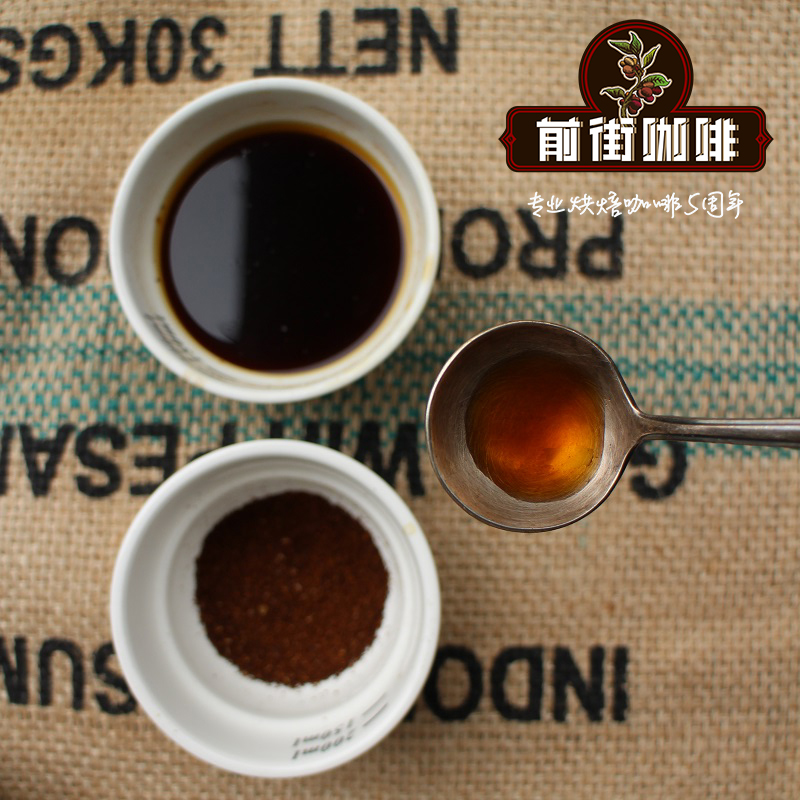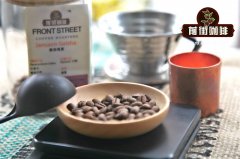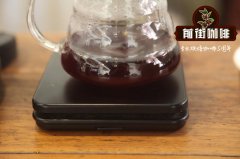What is the flavor of Kopi Luwak? what are the taste characteristics of Kopi Luwak?

Professional coffee knowledge exchange more coffee bean information please follow the coffee workshop (Wechat official account cafe_style)
So what is the taste of this famous Kopi Luwak?
First of all, let's talk about its beans. As the range of wild civets is at low and middle elevations, most of the coffee varieties are robusta beans, while Arabica beans at high elevations are even rarer. Remember we said before that the best coffee is usually Arabica, not Robusta.
Secondly, let's talk about its special feature-the special way of processing. As we all know, no matter what kind of coffee processing, the original motivation is to take the coffee beans out of the coffee cherries. The in vivo fermentation produced by civets is a beautiful misunderstanding. Curious Luwak is attracted by the sweet coffee cherry, but can only digest its skin and pulp, and the coffee bean as the core can only be excluded from the body after passing through its digestive system.
In the whole process, Luwak chooses coffee cherries with high maturity and sweetness to eat. After the corrosion and fermentation of its gastric juice, the protein of coffee beans is destroyed, resulting in short peptides and more free amino acids, which reduces the bitterness of coffee. This is a good thing, but because of this process, the coffee beans are contaminated with Luwak's unique body fluids, adding to the earthy and traditional Chinese medicine flavor of Indonesian coffee itself, and even adding a bit of fishy smell. To put it this way, if you prefer the fishy smell of aged beans, you may fall in love with Kopi Luwak, otherwise you will avoid it.
Finally, let's talk about Kopi Luwak from the perspective of animal protection. Since becoming a legend, Kopi Luwak has become one of the most expensive coffee in the world, costing hundreds of dollars a pound. Only about 150g of coffee beans can be extracted from a kilo of Luwak excrement, causing 20 per cent loss during baking. Due to the unique raw materials and production process, this kind of coffee can be said to be so rare that the annual supply of wild cat poop coffee beans worldwide is no more than 400kg, or about 500lbs.
From this, it can be understood that 85% of Kopi Luwak on the market is fake. The legend of Kopi Luwak also opened up the miserable cat life of Luwak. Humans go to great lengths to expel benefits. Coffee farmers in order to chase high profits, take wild Luwak home and raise it so that they can produce more Kopi Luwak. They are even locked up in narrow, dirty cages, causing them to collapse. PETA staff found that the caged Luwak was so irritable and depressed that he nearly collapsed.
They are fed large amounts of coffee fruit every day to produce more coffee beans, and Luwak face serious health problems due to lack of vitamins and other nutrients. And artificially fed coffee beans have not been screened, not high-quality beans! The quality and taste of the Kopi Luwak produced will be much lower. The high price of Kopi Luwak has also led to a bad atmosphere, such as shit coffee, squirrel shit coffee, bird shit coffee, monkey shit coffee and so on.
With the improvement of civilization, Kopi Luwak began to be produced in a variety of ways, one is to pick up the coffee beans excreted by civets after eating coffee beans in natural coffee gardens, and one is to artificially feed screened coffee beans. In the production process of Kopi Luwak in Yunnan, China, some farmers adopt the method of semi-captivity, the civet moves freely in the greenhouse, and the coffee beans are eaten freely by it. The way of obtaining is relatively reasonable, but the yield is low. So not everyone has a chance to drink rare and expensive Kopi Luwak, while experts who have tasted Kopi Luwak put forward a polarized assessment: some people compare it to the best coffee in the world.
Coffee critic Chris Rubin said, "the aroma of the wine is so rich and strong, incredibly rich, almost like syrup. Its thickness and chocolate taste, and lingering on the tongue for a long time, pure aftertaste. "
END
Important Notice :
前街咖啡 FrontStreet Coffee has moved to new addredd:
FrontStreet Coffee Address: 315,Donghua East Road,GuangZhou
Tel:020 38364473
- Prev

Know how many types of coffee machines there are | what are the types and differences of coffee machines?
Professional coffee knowledge exchange more coffee bean information Please pay attention to the coffee workshop (Wechat official account cafe_style) nowadays many household appliances are fully automatic and semi-automatic, and so is the coffee machine. For the household coffee machine, we simply divide it into two categories: fully automatic and semi-automatic. (only for electrical appliances, such as drip filtration, drip leakage, hand flushing equipment
- Next

How about Taiwan coffee? what are the characteristics of the best flavor and taste of coffee beans in Taiwan?
Professional coffee knowledge exchange more coffee bean information Please pay attention to the coffee workshop (Wechat official account cafe_style) is also in the north-south latitude of the coffee growing gold belt in Taiwan, Alishan altitude, air, local brew quality, temperature, are very suitable for roasting high-quality coffee beans. However, since the British first brought coffee trees to Taiwan in 1884, one hundred
Related
- Beginners will see the "Coffee pull flower" guide!
- What is the difference between ice blog purified milk and ordinary milk coffee?
- Why is the Philippines the largest producer of crops in Liberia?
- For coffee extraction, should the fine powder be retained?
- How does extracted espresso fill pressed powder? How much strength does it take to press the powder?
- How to make jasmine cold extract coffee? Is the jasmine + latte good?
- Will this little toy really make the coffee taste better? How does Lily Drip affect coffee extraction?
- Will the action of slapping the filter cup also affect coffee extraction?
- What's the difference between powder-to-water ratio and powder-to-liquid ratio?
- What is the Ethiopian local species? What does it have to do with Heirloom native species?

